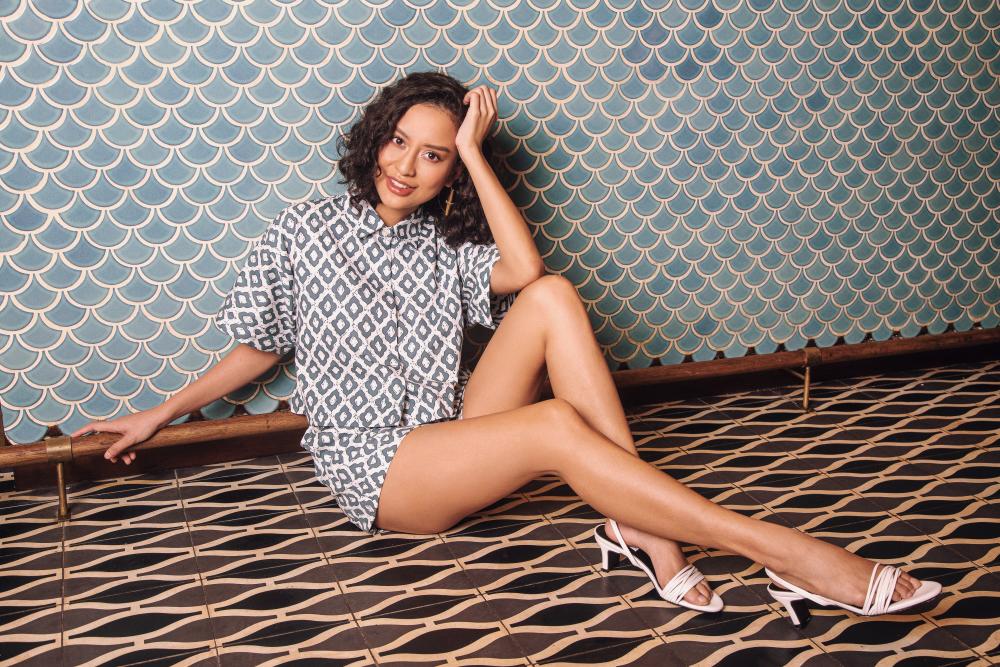THE artistry of batik is steeped in history, with its origins tracing back to 13th century Java, Indonesia, where the wax-resist dyeing technique flourished during the late 1800s to early 1900s.
The craft was later adopted by the Malay Peninsula when the Javanese immigrated, spreading the textile art to Kelantan, Terengganu and Pahang.
Local fashion brands have slowly started to revive the time-honoured art form, and here are seven batik brands for you to look into if you wish to own a piece of this cultural symbol this Malaysia Day.
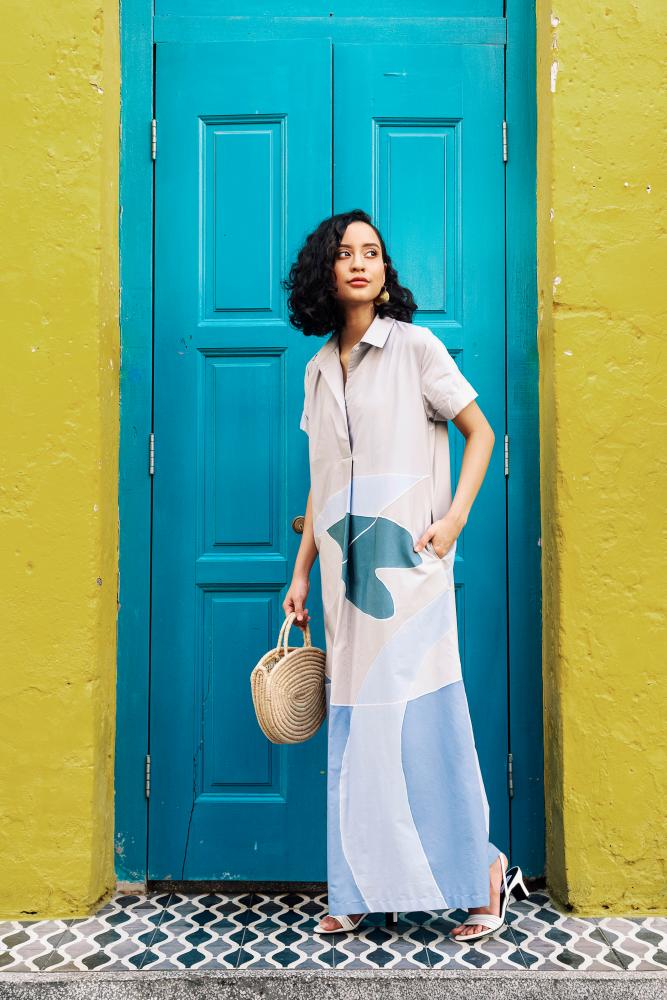
FERN
Five years ago, Fern Chua established her sustainable fashion label to celebrate and challenge the long-standing art of batik making, fusing the handcrafted fabric with contemporary designs to create luxury resortwear inspired by nature.
Since then, Chua has released a total of eight collections, each representing an element, namely Kiso In Winter, Wave, Ginkgo, Wilderness, Coral, Fern, Sakura and the most recent launch, Moroccan, which takes abstract cues from the Great Sahara and beautiful Moorish tile patterns.
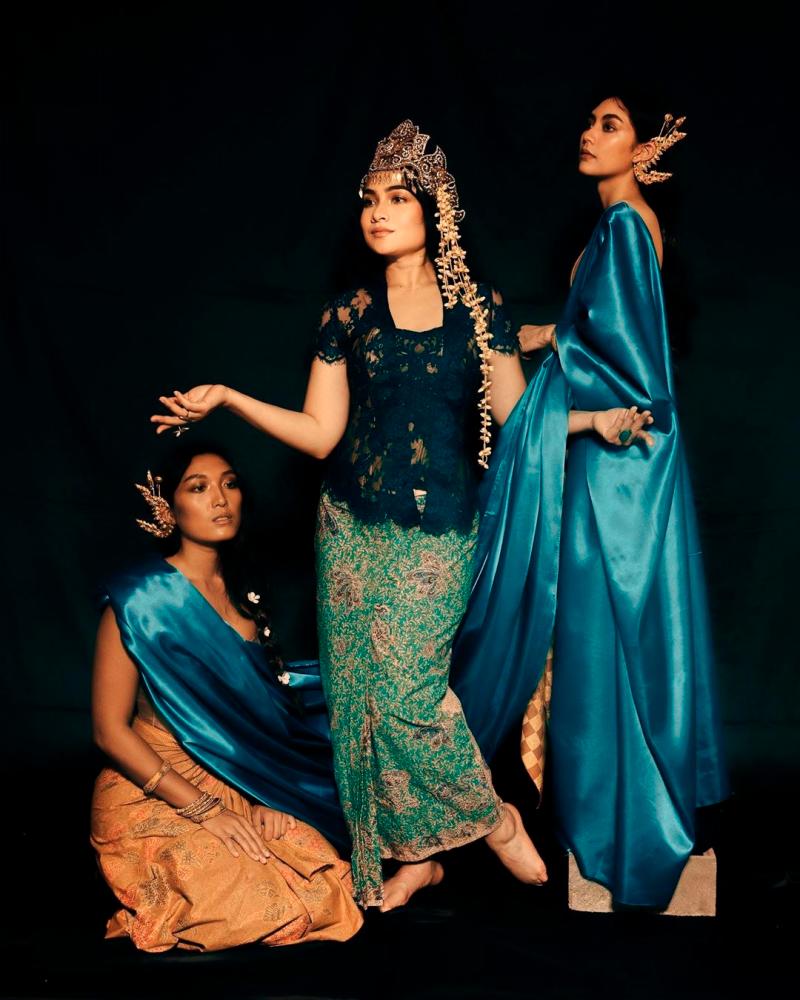
Batika
It started when Noorul-Hudaa Abdul-Rahma discovered vintage photos of her Indonesian-descent mother from the 1970s dressed in full traditional attire. It made her wonder about the glory of the forgotten past – the heritage and history being taken over by fast fashion.
Then in 2012, she launched Batika with the idea of revitalising the intricacies and quality of old Nusantara traditions during modern times, while celebrating kebayas, batiks and embroideries.
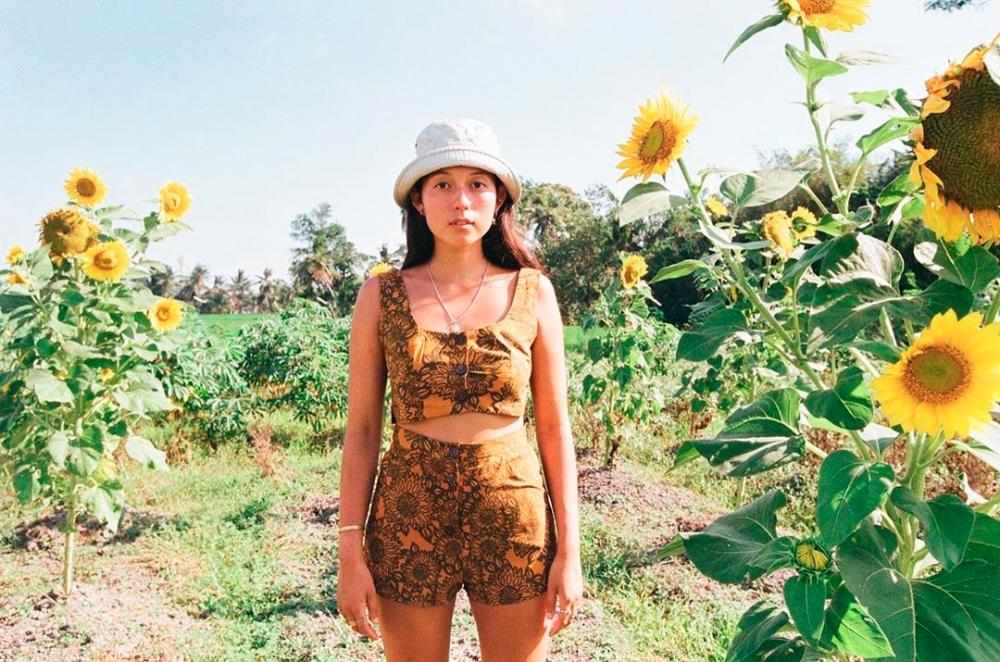
Dona Plant Base
What started off as a labour of love in 2016 by Vanessa Toolseram to share her handmade batik pieces has since grown to become a full-fledged sustainable fashion label of love for the environment, using only natural dyes, upcycled textiles, organic materials and plastic-free packaging.
The self-professed “old soul” takes inspiration from her Peranakan heritage by looking back at the past to rework her favourite old-school styles – ones that fits better, feels softer and inflicts less damage to Mother Nature.
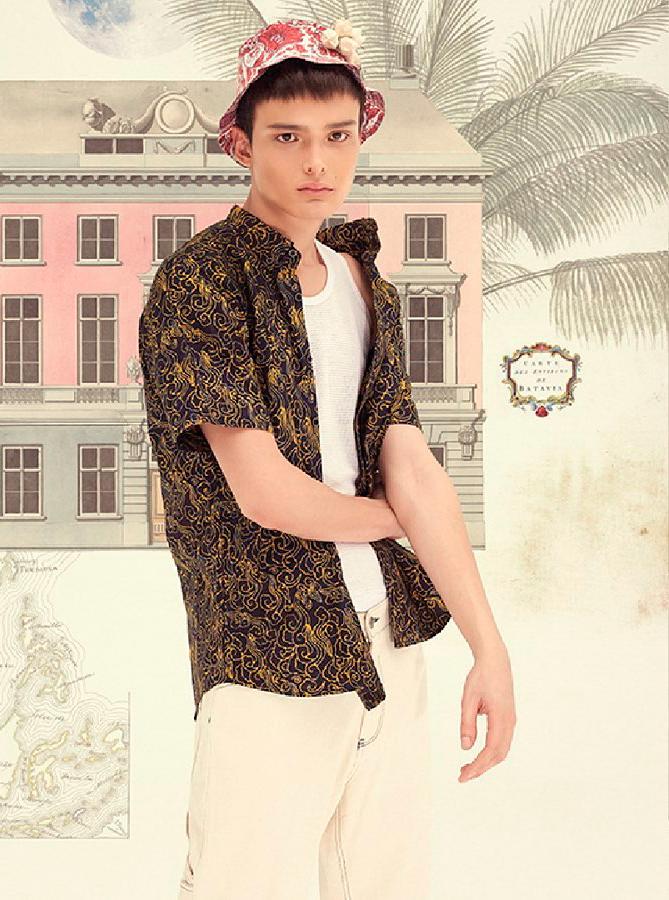
Kapten Batik
In 2017, two former engineers, Farhan Omar and Mohamad Ekram Faiz, decided to marry their love for batik with their idea for a menswear label, resulting in Kapten Batik. They see batik not so much as formal wear reserved for special occasions, but as casual, everyday wear.
Together, they travelled extensively to seek out artisans within the region to design batik prints and fabrics truly unique to the brand, such as the Nusantara series from Indonesia, Masterpiece from Terengganu, Parahyangan from Central Java and Maharaja from Rajasthan, India.
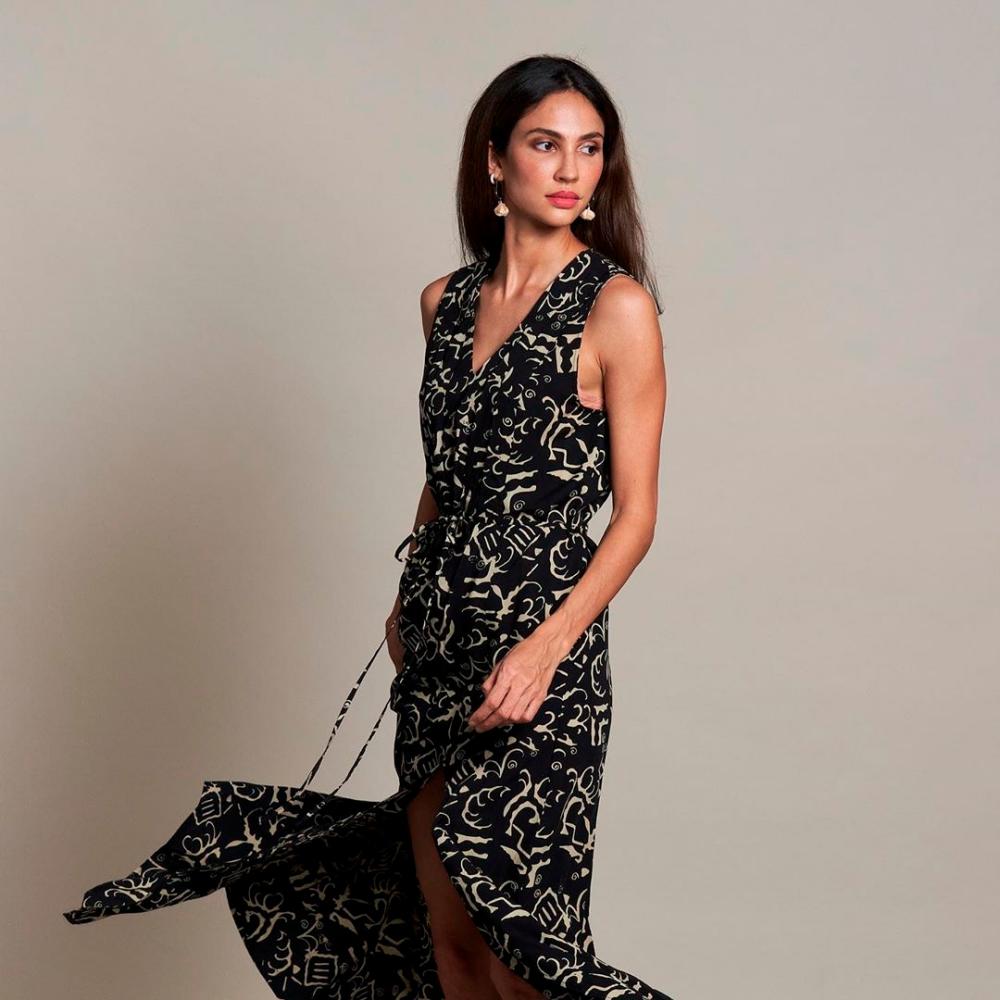
The Batik Boutique
Founded by Amy Blair in 2009, The Batik Boutique is more than a fashion label; it’s a social enterprise with a purpose to empower local artisans in the different marginalised communities by providing them work and sustainable income so that they too may provide for their families.
Today, more than 150 artisans work with Batik Boutique as they create a variety of batik products, from apparel, bags and face masks, to accessories and homewares.
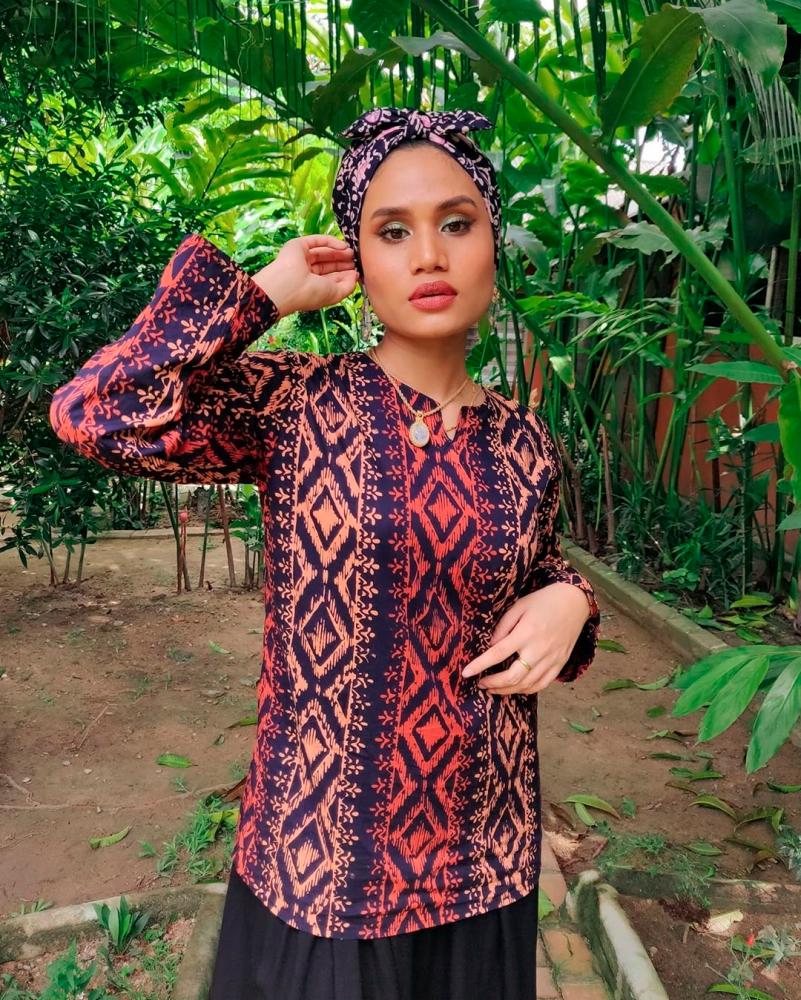
Maryam Bayam
When the brand was established in 2017, founder Maryam Mutalib came up with the tagline “Better in Batik”.
She takes accessorising to the next level through her headbands, earrings, scrunchies, face masks and pareos, giving them a bohemian, batik twist.
Maryam sources hand-blocked batik fabrics from Terengganu and crafts them meticulously by hand in her hometown at Kampung Chelet, Nilai.
But the biggest takeaway from Maryam Bayam lies in its repurposing of deadstock and scrap fabrics in support of the slow fashion movement.
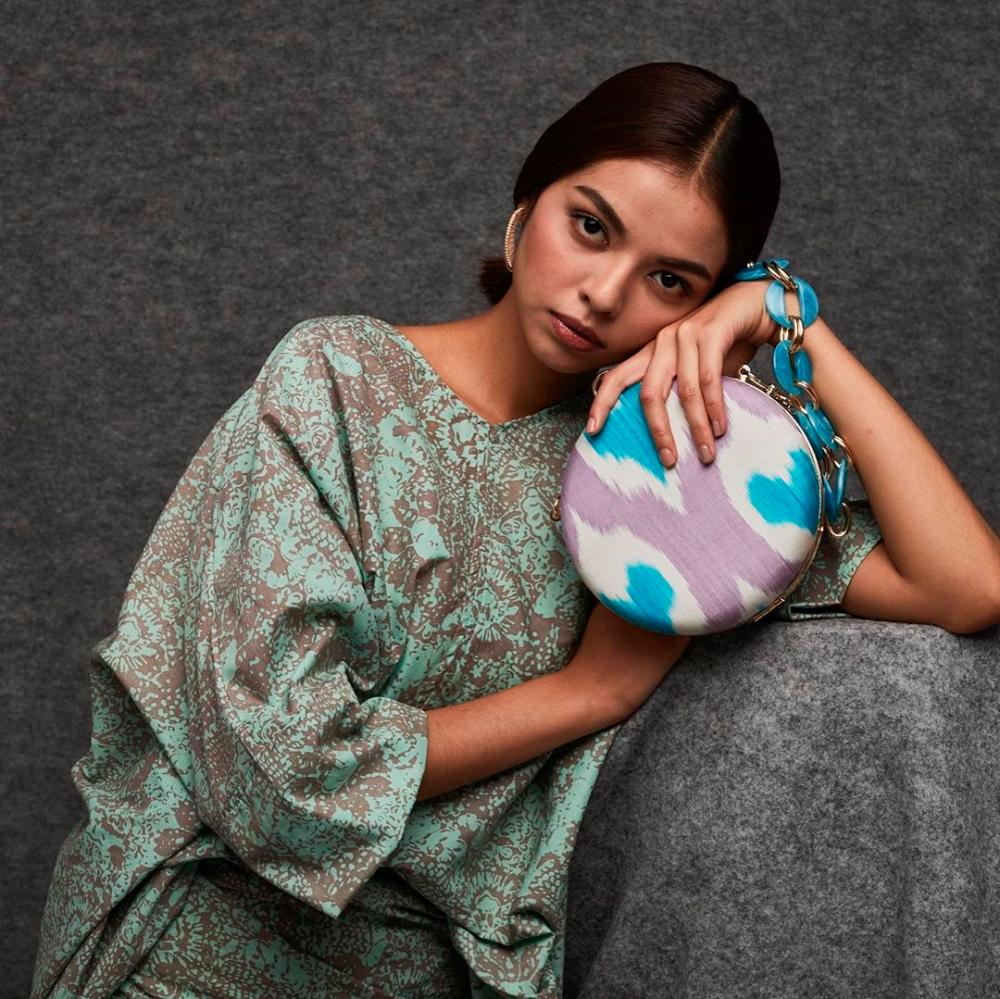
Frankitas
Frankitas was born in 2014, out of the memory of founder Franki Turner’s Indonesian heritage and her appreciation for tradition art.
Traditional textiles remind her of her childhood living in a village in West Java, in which she tries to emulate the familiar sense of community that she has experienced by building a sustainable working community of weavers in Asia amongst the economically disadvantaged crafters.
Turner roped in artisans from Indonesia, Malaysia, Cambodia, India and Central Asia to produce traditional textile motifs such as batik, ikat, songket, tenun and rangrang on a series of bags and clutches.



